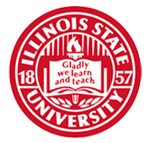Abstract
Differentiated instruction is a student-centered approach to instruction that considers the differing characteristics and aspects of the learner. With increasing diversity in higher education, differentiated instruction is one strategy that instructors may use to facilitate student success. However, there is limited empirical research examining the effectiveness of differentiated instruction in higher education. Using a quasi-experimental pretest posttest group design, the effects of differentiation of instruction, specifically differentiation of content and variable grouping, on student content knowledge were examined in an undergraduate course in a Communication Sciences and Disorders program. Students in the intervention group scored significantly higher on final course grades and one unit posttest following participation in the intervention.
Overall, the intervention group scored significantly higher on the final course grade than the comparison group. Yet, there were no significant differences between the intervention and comparison group on the final posttest scores, on the student perception survey, nor the weekly posttest quiz scores, except in the area of pragmatics. Implications for pedagogical approaches in CSD and higher education are discussed.
Recommended Citation
Green, K. B.,
&
Towson, J.
(2022).
Using Ability Grouping to Examine the Effects of Differentiated Instruction in an Undergraduate Course in Communication Sciences & Disorders.
Teaching and Learning in Communication Sciences & Disorders, 6(1).
DOI: https://doi.org/10.30707/TLCSD6.1.1649037808.600819




